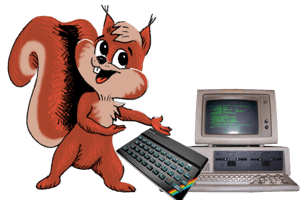Literate Programming (LP) was invented by Dr. Donald Knuth in the 1980s. It views programming as a mainly literary activity, where the main task is to concentrate on explaining to humans what the computer must do, and the program is a secondary message embedded in a resulting documentation Web. LP raises documentation from being an often neglected afterthought, to becoming the main principle of program organization. This involves using two different languages together: program source code, and a natural human language for documentation.
More information
More information
Subcategories 1
Related categories 1
Sites 15
Resources, consulting services, downloads, freeware for Windows 95/98/Me-NT/2000/XP; learn about the CWEB programming system; articles, books, CD, tools, news, links.
A part of the Computer Science Bibliography Collection.
Literate programming variant; explanations embed no code, but display next to code, in Web browser; source files are not altered, explanations organized by whole abstraction, not free form; now supports Java, Scheme. Explanations, examples, downloads.
A WEB system of structured documentation for multiple languages, originally the F was for FORTRAN, but now handles C, C++, Fortran (F77, F90), RATFOR, TeX (somewhat), tries to implement WYSIWYG language-independent mode. Open source, GPL.
Elucidative Programming system for Java, has: web server, abstractor, database interface, Emacs major mode.
The WikiWiki entry point for related information and discussions.
Growing article, with links to many related topics. [Wikipedia]
Good place to start looking for information.
Article by Norman Walsh.
A large collection of links to related resources.
Provide tools to support Donald Knuth's Literate Programming using XML instead of TeX. Is not based on any specific DTD or programming language, but instead uses processing instructions for processing the literate programs.
Simple, extensible tool for Literate Programming.
Descendant of the original, first written by Preston Briggs; description, downloads.
Information on applying SGML and XML to Literate Programming.
A Literate Programming tool for XML written in XSL-T.
Resources, consulting services, downloads, freeware for Windows 95/98/Me-NT/2000/XP; learn about the CWEB programming system; articles, books, CD, tools, news, links.
Simple, extensible tool for Literate Programming.
Descendant of the original, first written by Preston Briggs; description, downloads.
Information on applying SGML and XML to Literate Programming.
Provide tools to support Donald Knuth's Literate Programming using XML instead of TeX. Is not based on any specific DTD or programming language, but instead uses processing instructions for processing the literate programs.
Elucidative Programming system for Java, has: web server, abstractor, database interface, Emacs major mode.
A part of the Computer Science Bibliography Collection.
Literate programming variant; explanations embed no code, but display next to code, in Web browser; source files are not altered, explanations organized by whole abstraction, not free form; now supports Java, Scheme. Explanations, examples, downloads.
The WikiWiki entry point for related information and discussions.
Growing article, with links to many related topics. [Wikipedia]
Article by Norman Walsh.
Good place to start looking for information.
A Literate Programming tool for XML written in XSL-T.
A large collection of links to related resources.
A WEB system of structured documentation for multiple languages, originally the F was for FORTRAN, but now handles C, C++, Fortran (F77, F90), RATFOR, TeX (somewhat), tries to implement WYSIWYG language-independent mode. Open source, GPL.
